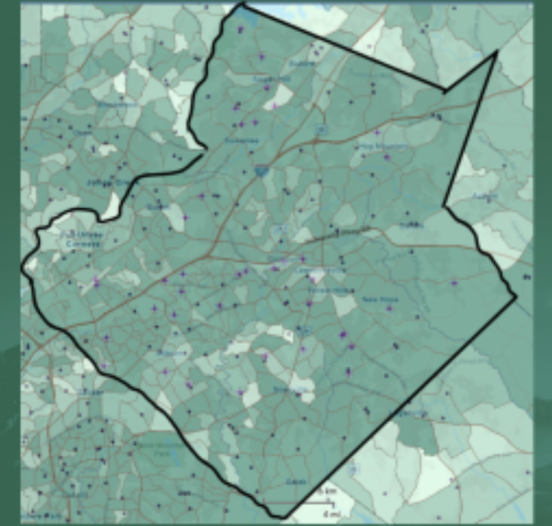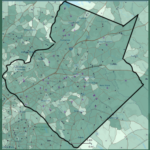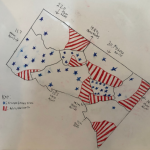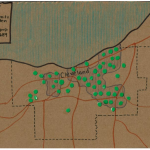



School gardens can serve as a great way to combat food insecurity and facilitate community outreach. In my place, Gwinnett County in the metro Atlanta area, school gardens are rising in popularity due to the educational aspect and increased concern about food security. Studies show that students who have a garden at school have healthier eating habits and greater access to fruits and vegetables. Gardens add variety to children’s diets which increases their overall health. Schools allow for students and parents to come to the garden after hours and collect fresh vegetables and herbs which fosters a school community and allows for even greater access to healthy foods. After mapping school gardens in Gwinnett County, I found that gardens are not clustered in high-income, white areas, but they are evenly distributed throughout the county because of the school locations. This means that regardless of income or race, students have increased access to healthy food. Therefore, I conclude that community gardens in my place is a just sustainability because the distribution of gardens is about the same, regardless of income or race.
~ Sarah P.






pikturne
May 1, 2020 — 5:53 pm
Really interesting project, Sarah! There’s a lot of really cool history surrounding the implementation of community gardens into school curriculum and extracurriculars. In areas where there are higher impoverished and minority populations, do you think that the implications of garden differ from their white and wealthy counterparts? If these children already had access to these foods at home, would it change how they interact with the garden? Not something you necessarily have the answer to, but just some questions I thought of!
parsonsa
May 1, 2020 — 6:05 pm
In schools in more impoverished areas, there is more teacher involvement with caring for gardens. The quote on the right side of my first image comes from a science teacher at a school where over 90% of students receive free/reduced lunch. Since many of these students don’t have access to fruits and vegetables at home, they rely on more teacher guidance about interacting with gardens. In higher income areas, many of the gardens have parent volunteers that have free time to help in gardens. However, both ways have proven to be a success. Thanks for some great questions!
Sooik
May 2, 2020 — 4:42 am
That’s a really interesting topic! Apparently, school gardens have so many positive effects on mitigating some of the disproportionate environmental burdens in certain communities. Do you think such school gardens are receiving enough attention as a method to possibly address environmental bads such as food insecurity or health disparities?